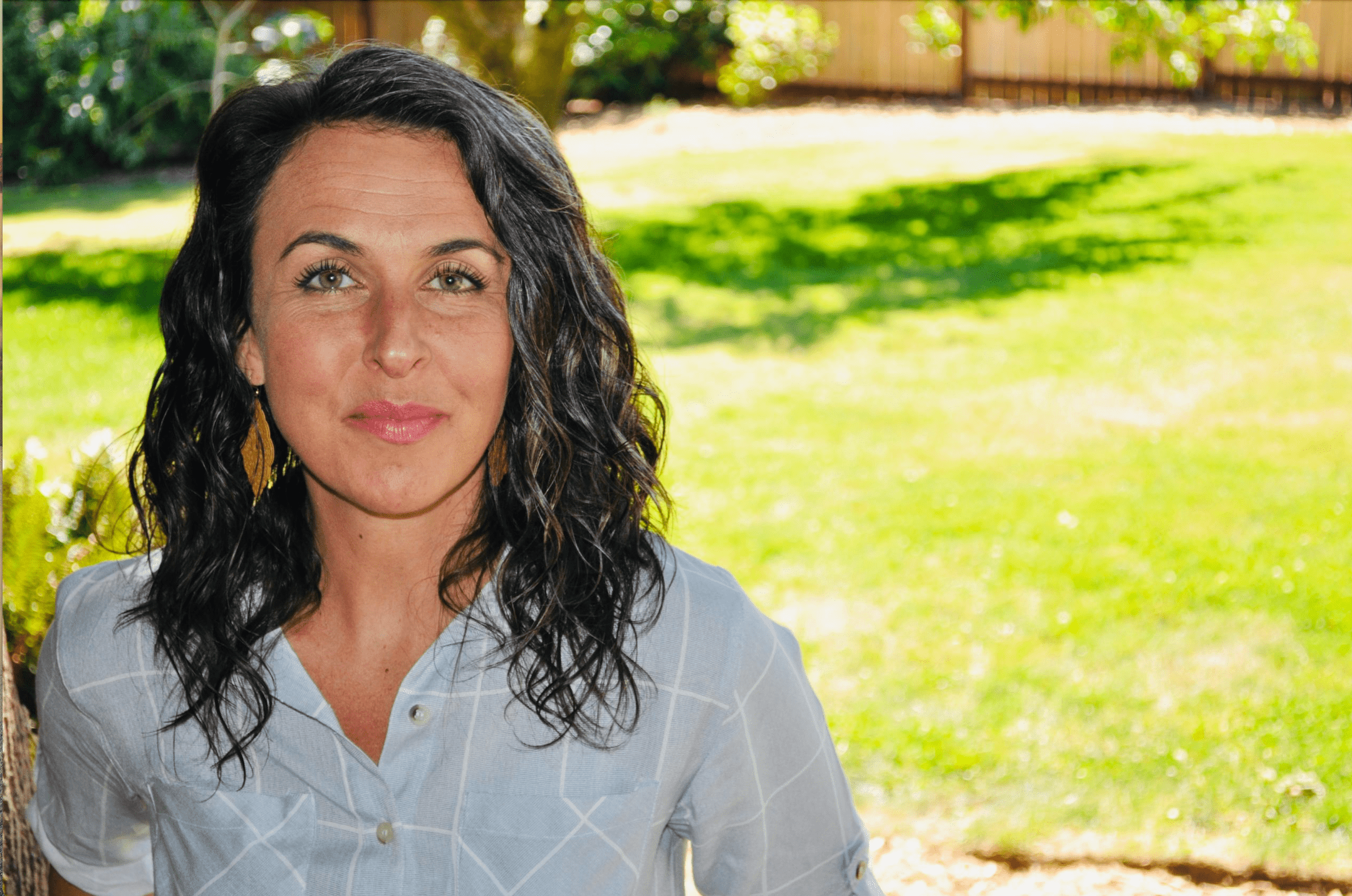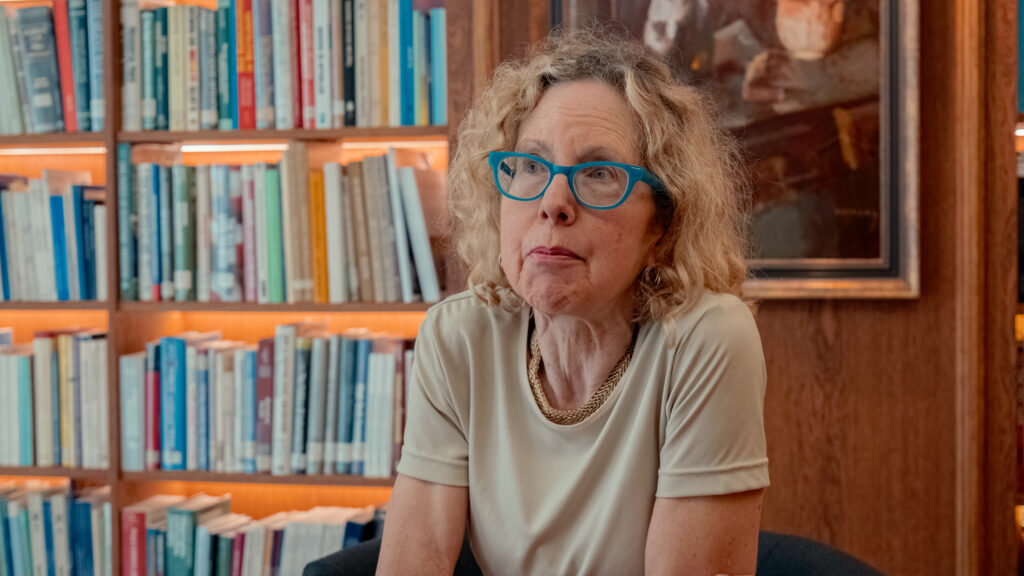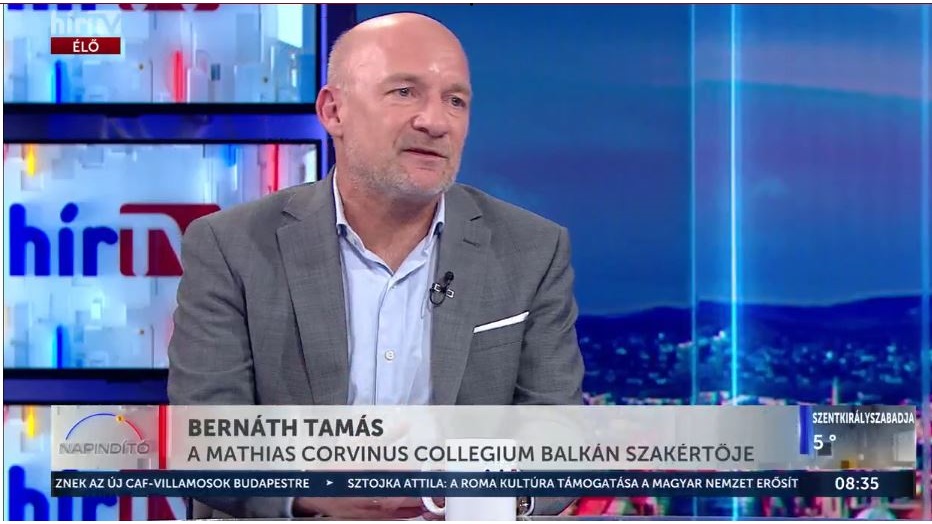Katy Faust is the Founder of Them Before Us, the only organization solely devoted to defending children’s rights in family structure in the United States. After working with the largest Chinese adoption agency in the world, Katy began writing about why marriage is a matter of social justice for kids. This is an interview made with Katy Faust, one of the invited speakers of the MCC Budapest Summit 2022 organized by Mathias Corvinus Collegium.
Can you tell us a little bit about your background and summarize how you became an advocate for children rights?
My mother and father were married until I was 10 and then they divorced, and then my father dated and remarried, and my mother fell in love with a woman and they have been together ever since I was 10. So, when I was growing up, after the divorce I split my time between my father and my mother. I was very close to both of them, very grateful that they had a friendly relationship, so I could still see both of them. I don’t consider my mother’s partner to be a mother, but I do consider her to be my friend. So, what that taught me is that you can, and you should love the people in your life who identify as gay and lesbian, but it also taught me that I needed my mother and father. They both did different things for me. I wanted things, I craved things from my father that I didn’t necessarily need from my mother and vice versa. So when the gay marriage debate began in my state, and then again, across our nation, what I heard from the people supporting gay marriage is that if you don’t support gay marriage, you hate gay people. And that made me angry because I love my mother and I love her partner and I have a lot of other friends who are gay and lesbian. I also love them just like pretty much every other traditional marriage supporter I know. The other thing that I heard from them was that kids don’t care if they have two moms or two dads. But what that really means is kids don’t care if they have lost their mom or dad. I knew that to be a flat out lie because I had been working with kids for a couple of decades and I had not yet met a child who lost their mother and father or mother or father who at minimum were not curious. Even the adopted children, who I knew loved their adoptive parents, were very often curious about who their biological parents were. But very often children who were not being raised by their mother or father were deeply wounded by that. It would keep them up at night. They would wonder, they would cry about it. It would be very hard for them to talk about it without their chins trembling, because it had wounded them. They wanted that particular man and woman to love them and it was painful when they didn’t. So that is why I started writing about this, because I saw that in the matter of the definition of marriage, it was all about the adults and what the adults want and the children were ignored; and then the more I learned and the more I studied, the more I saw that every subject about marriage and family always focused on what the adults wanted rather than what the children needed, desired and even had a right to. So, the goal of ‘Them Before Us’ is to look at every marriage and family issue from the perspective of the child.
In your presentation at the MCC Budapest Summit on ‘The Values We Teach our Children’ you discussed parenting in a refreshingly practical manner. Do you think it is possible to formulate general rules about raising children to keep them away from woke ideology?
A lot of parents will say, well, I do not want to talk about that, or that makes me uncomfortable. Well, somebody will talk to your child about it. Is it going to be TikTok or is it going to be you?
This will be my next book. How to make sure that your children hold fast to your ideals, even when the culture is totally insane. So, the short answer is, you need to balance exposure and protection and you especially need to protect them until they are about 10 or 11 years old, because that is the phase of their mental development, where they do not think critically. They cannot filter out damaging ideas. Like in that age, people will say, oh, they are like sponges, right? They just repeat everything that you say, right? They are not able to say, wait a second. Is that true? To the same degree as older children do. In those early years, up until about age 10 or 11, you must saturate them in truth and beauty, model for them goodness, model for them true femininity, true masculinity, talk to them about the beauties and the reality of sex. But it also means talking about things that are true. So that means telling them the truth about challenging things in the world. The truth about the Holocaust. The truth about slavery. The truth about grandmother, who is suffering from cancer, whatever it is, right? You do not hide the truth from them. You explain the truth, but you keep away distortions. You keep away ideology, you keep away the damaging and destructive views that do not align with reality that are not true, and that are not beautiful. But then when your kids get to be about 10 or 11 or 12, they are wiring in terms of the way they learn changes. And they go from being the sponge that just memorizes and takes everything in to then questioning. You start to see this, your kids say, but why, but how do we know? What if we are wrong? And that is where you say now it is time for me to fill you with truth in a new way where I am actually going to be the one that talks with you. I am going to introduce the subject of gay marriage. I am going to talk with you about abortion. I am going to explain critical race theory and why it is wrong with you. So we take all of the things that are distorted in the culture. We are the first people to introduce it to our child, so that we can show them, correct them, on what is wrong. But if that does not happen in the home, then parents are going to be at a huge disadvantage. The reason why, because a lot of parents will say, well, I do not want to talk about that, or I am not ready to talk about that, or that makes me uncomfortable. Well, somebody will talk to your child about it. Is it going to be TikTok or is it going to be you? The thing is that whoever talks to the children first, whoever introduces the concept first, if the first time they hear about pornography is from their mom who says, ‘Hey, sometimes when you’re on the internet, you might see pictures or videos of people having sex or people who are naked. That’s called porn. It’s kind of scary and it’s kind of alarming. So, if that happens, just let me know’. But if the first time that they see porn is from the fourth grader, with a smartphone who puts a video in their face, who is it they go back to when they have questions about porn. It is not mom. They do not think that mom knows anything about it. They are going to go back to their fourth-grade friend. So, it is very important for parents to get to their children first because whoever gets to the kid first, the kid will automatically assume is the expert and go back again and again, and they will start to trust and rely on that source. And you want your children to trust and rely on you.
Overall, do you think the negative tendencies that are already in effect in the United States could still be reversed?
Yes. In the sense that the ideologies that are prevalent in the United States right now, whether it is gender theory or critical race theory or gay marriage or whatever it is, they cannot redefine reality. You can legislate you can make new laws, you can change words, but these are laws, natural laws. You know, marriage between a man and a woman is not a law, like a speed limit, something that you can adjust and change. It is a law like gravity. Where you can say gravity does not exist. But if you step off the roof, that is a law that does not change because you think that you have redefine it. That is what marriage is like. That is what the difference is between male and female is like, that is what, like the distinctiveness of race is like, race is a beautiful mark of our individual identity, but it is not our defining characteristic. When we choose to believe and redefine our world based on ideology, not like the realities go away. A good friend of mine says, you will never be on the wrong side of history when you are on the right side of natural law because natural law will always come back.
What is your opinion on the 2021 Virginia gubernatorial election? Do you recognize the victory of Glenn Youngkin as a sign of a conservative shift in public awareness since public education policies were emphasized in his campaign?
What is happening right now is, conservatives tend to be a little quieter, a little less politically engaged, a little less aggressive, and less noisy, but we vote. But what has happened is the left has gone so extreme, so ridiculous, so dangerously wrong that it is actually radicalized a lot of very quiet, nice people. That is my story. I did not want to get into this. I do not like being hated. I did not intend to be a culture warrior, but the other side overplayed their hand, you know, they, they went too extreme. And when you do that, what happens is you awaken something in ordinary people to fight. So, that is what we saw in Virginia is the other side went so extreme with sex education curriculum and violating parental rights, and damaging children with these ideologies that they awakened a sleeping dragon. In essence, they created a whole new lobbying group called parents.
As an outside observer, the society of the United States seems to be more culturally fragmented and discussion between them has become increasingly impossible than ever in US History since the American Civil War. Would you agree with such statements? If you do, do you see any chance for the US Society to backtrack from this direction?
I think our only hope is to reawaken in-person relationships. Unfortunately, there is something taking place in America. Some people have called it the great sorting where now people are sorting into red states and blue states
I don’t know. I don’t know the answer to that, but you are exactly right. It is horribly polarized. I actually saw that first with gay marriage. That was the first time that I saw people saying, ‘well, I disagree, you are wrong’ and the other side responding ‘I disagree, so you are a Nazi.’ Instead of saying you’re stupid, they said you’re evil. And why would you ever talk to somebody who’s evil? They’ve done that with every issue, right? If you voted for Trump, you’re evil. If you don’t support Black Lives Matter, you are evil. If you’re not pro-vaccine mandates, you’re evil. And so you characterize disagreements not in terms of “I’m right, you’re wrong,” “I’m smart, you’re dumb ” but “I’m righteous and you are evil.” There’s no real reason to have a conversation with an evil person. I think that’s one reason why things are so polarized. It is because we’ve taken this out of the realm of where we disagree, into there always being one side that is virtuous, and one side that is wicked. But the antidote to that is in-person relationships. You need to talk to people who disagree with you and it is hard, it’s very hard to have those conversations. But those interpersonal relationships within our families, with our neighbors, especially with people who disagree, if you can say, ‘I disagree, and I think you’re an idiot, but you just brought me dinner because I was sick.’ It’s very hard to hate somebody if they’re serving you and loving you. So I think our only hope is to reawaken in-person relationships. Unfortunately, there is something taking place in America. Some people have called it the great sorting where now people are sorting into red states and blue states. The red people are leaving the blue states and blue people are going to red states, but no red people are going to blue states. So now there is going to be even more polarization, because there are going to be fewer people living in your physical world that disagree with you. I don’t know the way forward, but I think we are at a tipping point where even people on the other side of the spectrum feel like things have gone too far. They’re afraid of saying the wrong thing because maybe they will be canceled. So, if you’re not moving to the extreme left, year after year using the perfect phrase, the one for today, not the one from last month, there’s fear there. So I do think the next generation hates cancel culture. They hate that people can’t speak freely. So I do think that there’s a glimmer of hope.








